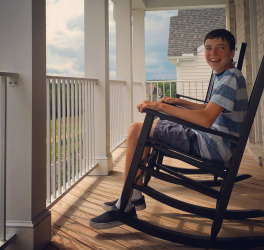With the number of children diagnosed with autism on the rise, the need to find what causes the disorder becomes more urgent every day. UCF researchers are now a step closer to showing the link between the food pregnant women consume and the effects on a fetus’ developing brain.
Saleh Naser, Latifa Abdelli and UCF undergraduate research assistant Aseela Samsam have identified the molecular changes that happen when neuro stem cells are exposed to high levels of an acid commonly found in processed foods. In a study published this week in Scientific Reports, a Nature journal, the UCF scientists discovered how high levels of Propionic Acid (PPA), used to increase the shelf life of packaged foods and inhibit mold in commercially processed cheese and bread, reduce the development of neurons in fetal brains.
More research needs to be done before drawing clinical conclusions. Next, the research team will attempt to validate its findings in mice models by seeing if a high PPA maternal diet causes autism in mice genetically predisposed to the condition. There is no cure for autism, which affects about 1 in 59 children, but the scientists hope their findings will advance studies for ways to prevent the disorder.
“This research is only the first step towards better understanding of Autism Spectrum Disorder,” the UCF scientists concluded. “But we have confidence we are on the right track to finally uncovering autism etiology.”








